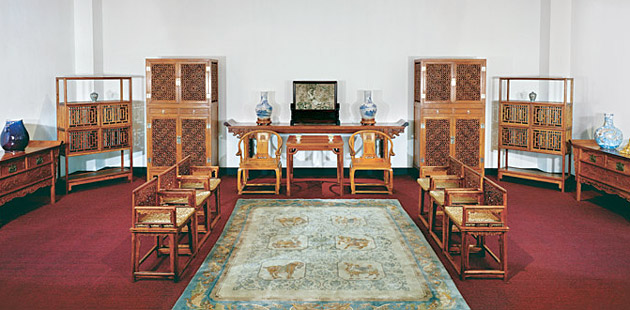Database to help prevent bigamy
Updated: 2011-12-24 11:28
By He Dan (China Daily)
|
|||||||||||
BEIJING - Cases of marriage fraud will become less common if the establishment of a national marriage database in 2012 has the effect top civil authorities want it to.
The database, which was announced on Friday, will record the marital statuses of Chinese citizens who tied the knot in the past six decades. That information will be uploaded to the Internet next year, said Li Liguo, civil affairs minister.
So far, 25 provinces and autonomous regions have set up their own online databases, according to the latest figures from the Ministry of Civil Affairs.
Chinese law forbids polygamy. Even so, people manage from time to time to take more than one spouse.
Such abuse is difficult to prevent without the help of a national marriage database, said Jiang Yongping, a researcher at the Women's Studies Institute of China.
"People tend to move more these days," Jiang said. "And they are likely to marry people whose pasts they know very little about."
Xiao Rong, a 39-year-old resident of Guangzhou, capital of Guangdong province, discovered her husband Wei Zhicheng was a bigamist when she was in court trying to divorce him, local media reported.
Xiao had met Wei, a businessman, at a trade fair in 2002. A few months later, they were living together.
Xiao asked Wei to register the two of them as a married couple. Wei later came to her with two "marriage certificates", both of which proved to be fakes.
During their marriage, Xiao became pregnant five times but never raised a child to adulthood. Her firstborn, a son, died while he was young; she later had four abortions.
Xiao asked for a divorce in 2008 and, only then, found out that Wei had been married in 1989 and that the previous union had produced a daughter.
In April, Wei, 49, was sentenced to six months in prison with a one-year reprieve and ordered to pay Xiao 500,000 yuan ($79,000) in compensation.
Jiang believed the government's decision would help make bigamy and other misdeeds, such as Wei's, less common.
Liu Jie, a resident in Shenzhen, Guangdong province, said she is worried the database will give the public access to private information.
"The more information that is shared online, the higher the risk is that your personal life will be exposed and manipulated," said Liu, who works in e-commerce.
She said the government should guarantee that the database will only be used for marriage registrations and for census purposes. She said anyone found guilty of leaking the information should be subject to strict punishment.
Hot Topics
HIV/AIDS, Egypt protest, Thanksgiving, climate change, global economic recovery, home prices, high-speed railways, school bus safety, Libya situation, Weekly photos
Editor's Picks

|

|

|

|

|

|







